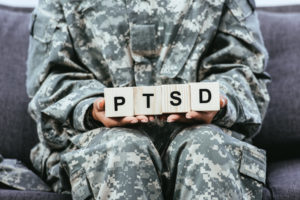What's On This Page?
ToggleSleeping is one of the great pleasures in life unless you have bad dreams or nightmares.
Then it’s pure misery.
Many people won’t even remember dreaming, and if they do, the details are blurry. But it’s true that most of us do dream during sleep, we just don’t remember it. We have about 100,000 dreams during the average lifetime, some are predictive and others are just based on what’s happening in our life.
Statistics say that within five, or perhaps ten minutes of waking up, about 90 percent of your dream is forgotten, unless you write them down or log them in your device right after waking.
Luckily, a man named Larry Page remembered his dream. He was a computer scientist and he woke up from a dream at 23 and wondered if there was a way to download the web and rank webpages by inbound links. He went on to become a co-founder of Google! Page’s net worth according to Forbes is 52 billion dollars and he’s only 45 years old. Talk about making money when you sleep!
Why can’t you remember your dreams?
Most people cannot. Our brains are trained to forget non-essential facts and most dreams aren’t that special. The reality is you remember the bizarre weird dreams, don’t you? This is because your brain will remember strange images and facts because they stand out. Here are some little-known facts about dreaming that you may be interested in. If you take exception with something here, just realize I am speaking for the majority of folks, not all of you.
You might become incapable of movement during a vivid dream.
This is most likely to occur during REM sleep and happens during a nightmare. Ever wonder why you don’t normally scream out loud or run out of bed during a bad dream… again, you are likely to be incapable of moving due to the temporary paralysis. It’s amazing and scary all at once!
Many people who lost sight later in life can still see images in their dreams and dream visually like those with perfect vision. Those who were born with blindness may not see in pictures but they can still dream and experience sounds, touch sensations, and emotions during their dream state.
Here are some other interesting and amazing facts about dreaming and nightmares as they relate to emotions, medical conditions and medications:
1. PTSD Post-Traumatic Stress Disorder is Associated with Nightmares
Nightmares as opposed to pleasant dreaming, are way under-reported to clinicians and therefore under-treated. If they are related to PTSD, the psychiatric problems can escalate to the point of suicide. This reminds me of a recent news article I came across earlier this year regarding a brave soldier who served in Afghanistan alongside Prince Harry. The poor man suffered from nightmares and ultimately killed himself. I’m sure there were broader circumstances, however, recurrent nightmares and PTSD surely contributed.

With PTSD, there are several brain regions involved including the amygdala. This is the same part of the brain that deteriorates in patients with Parkinson’s disease. The amygdala plays a significant role in negative experiences and trauma and attaches emotional significance to events. Trauma and fear increase activity in the amygdala and for some reason, it heightens sensitivity. While dream states usually occur in REM (rapid eye movement) for most people, PTSD nightmares may occur with or without REM sleep.
The amygdala in PTSD patients is hyperactive or hypersensitive (while the hippocampus becomes hyposensitive) and this is one theory for why people exhibit fear and stress almost instantly when confronted with stimuli that are even remotely associated with past trauma. The amygdala is also implicated in PTSD nightmares. As an FYI, the neurotransmitters associated with this region of the brain include dopamine, norepinephrine, and serotonin.
2. Asthma and Nightmares
If you have asthma or obstructive airway disease, you are more likely to have bad dreams. And if you take medications to treat it, this increases the risk of vivid dreaming and nightmares. It can happen with many medications, I’m not singling anyone out. But for the purpose of this column, some research was done on montelukast (Singulair) and there appears to be a link between this drug and nightmares, especially in children. Please do not stop medication for this condition, just be aware of the side effects, and be more compassionate to your child if they wake in the wee hours with a bad dream. Remember, side effects are just potentials, they don’t occur in everyone.
3. Guilt Will Cause Bad Dreams
Most people have a bad dream and assume it’s from fear but other emotions may cause them. For example, confusion about a situation or guilt over what you should have done, or should have said. Also, disgust and sadness will trigger fear-based dreams, nightmares, and sleepless nights.
4. Acid Reflux Drugs Can Lead to Nightmares
Some of the most popular medications used to treat heartburn can cause people to have There was a case report cited in the April 2018 issue of a journal called Cureus. It was about a man getting treated for warts with “ranitidine.” This was an off-label use for the popular (but now RECALLED) acid reflux medication called Zantac. He had taken it twice daily (150mg) and almost immediately started having bizarre dreams. Once he stopped the medication, the symptoms resolved and he slept soundly again. This weird, side effect can happen with other “H2 antagonists” that are still sold today, the ones that are in the same class, for example, famotidine (Pepcid) and others.
5. Antihistamines Increases Nightmares
Think of Benadryl, an allergy drug that is relabeled and sold as a sleep aid. It can definitely make one sleep, but it can also cause vivid dreaming and in rare instances, sleepwalking. Like all anticholinergic antihistamines in this medication class, it interferes with REM sleep and suppresses cholinergic compounds in the body leading to dryness.
FYI, antihistamines are usually in the category of H1 antagonists, see above for what an H2 antagonist is. Essentially, you have histamine 1 and histamine 2 receptors as in “H1” and “H2.” The H1 antagonists block histamine on H1 receptors and therefore, work as allergy medicine. The H2 antagonists block acid by binding to the H2 receptors on your cell and work in your stomach. Both these categories can trigger nightmares.
6. Blood pressure drugs Commonly Cause Dreaming and Nightmares
This category of drugs is tightly correlated when it comes to nightmares. Anti-hypertensive medications have well-documented evidence to show they trigger nightmares and vivid dreaming. Turn off dreaming. A 2015 study on mice showed that there’s a chemical switch in our body that can turn off dreaming.
It’s a set of neurons that make a stimulating neurotransmitter called glutamate and this chemical will turn off GABA (relaxing, sleep hormone) and essentially wake you up. If you have insomnia, it’s possible you have too much glutamate. If you’d like to read more about glutamate and how it’s hidden in some of your favorite foods, read my article Your Favorite Condiment Can Make You Sick.
The researchers at UC Berkeley used laser light to activate a part of the mouse brain called the medulla which put the animals into REM dreamland within seconds! Remember, REM sleep, characterized by rapid eye movements, is the part of the dream state where muscles go into a mild state of paralysis so that dreaming can occur safely.
By “safely” it prevents us from acting out and running or jumping out a window if we’re chased in a dream. Inactivating the neurons with the laser lights blocked their ability to enter REM, which is the part of our sleep state where we dream.
7. Alcohol is a Big Nightmare Maker

Drinking is a sedative, but it paradoxically induces vivid dreaming. Some people drink alcohol and experience weird, scary and unpleasant dreams. Others use alcohol to numb themselves and they go to sleep and sleep soundly for hours. Here’s a Cleveland Clinic ARTICLE on the topic.
Alcohol suppresses REM, so it should be reducing your ability to dream, yet some people vividly dream on alcohol. It could be due to many factors, including the amount you drink, how frequently you drink, how your metabolism works, what your genetic SNPs are, and also how sensitive your receptors are on your cells. Other factors include your own ability to create neurotransmitters such as GABA and Glutamate.
GABA puts you to sleep, glutamate wakes you up, and is associated with stress. GABA-inducing compounds increase your ability to sleep as well as pleasure. GABA and glutamate co-exist in our body and both are impacted by alcohol. In the body, glutamate breaks down to GABA, but even this process can be inhibited if you have a SNP in your GAD enzyme.

8. Your Age Has Something to Do with Nightmares
If you grew up with black and white TVs as my folks did, you are more likely to dream in black and white. It’s not that you can’t dream in color, it’s just that more dreams are in black and white than in color, if you’re older. I can’t explain why but it’s a stat that has been proven.
9. Anxiety is Almost Always Part of a Nightmare
Of course, there are pleasant (and even awesome dreams) but for the most part, anxiety is the most frequently reported emotion that occurs when dreaming. Most people during surveys will say that their anxiety (in the dream) was due to falling, flying, or feeling rather unprepared. Sometimes it’s from being chased or from public humiliation.
In the case of PTSD, it might be related to reliving a specific trauma, or a memory that evokes the face of a person or place that evokes anxiety. Either way, no one is immune to this, no matter how much they make, what they do for a living, or where they live. Anxiety is the most frequently reported emotion.
Dogs dream too just in case you didn’t realize. You will often hear them whimper or see their paws twitching. More than likely they are running in their dreams or experiencing some type of anxiety.
10. Sleeping pills Can Lead to Nightmares

The prescription sedative-hypnotics, Z drugs, and benzodiazepines also induce vivid dreaming and nightmares. These are block-buster pharmaceuticals aimed at putting you to sleep, and they suppress SWS (slow wave sleep) thereby inducing dreams. Withdrawal from these medications can also ironically induce dreaming and even nightmares for a period of time. Read my article called Benzodiazepines Dangers and Lies.
11. Antidepressants Are Likely to Cause Nightmares
Medications used for depression like fluoxetine (Prozac) and paroxetine (Paxil) may increase serotonin since they are SSRIs. Patients on these SSRI medications frequently report very intense or disturbing dreams that could last the whole night. Citalopram might do this too, but it appears to be less of a problem with this particular drug.
As for the MAO inhibitor class of antidepressants, these drugs work by blocking an enzyme called Monoamine Oxidase, which in your body serves to break down norepinephrine and serotonin (stimulating happy hormones) into a calmer by-product. People who are given MAO drugs, or have a SNP in this gene that is expressed will often say that they can’t dream and haven’t dreamt in months, or even years.
12. Melatonin Supplementation Could Cause Nightmares
Some sleep supplements contain melatonin, which is the sleep hormone you actually make in your pineal gland when it gets dark. Taking it as a supplement in small doses is okay for most people. If you experience unpleasant or bizarre dreams, reduce the amount of melatonin that you take, or stop it entirely for a week or two.
Sometimes people who take LDN experience bad dreams. I didn’t have time to discuss that in this article, so feel free to read this one, Low Dose Naltrexone (LDN) 7 Things You Should Know.
If you’re interested in learning more about natural sleep aids, check out my article on how Eating Lettuce Might Make You Sleepy.

Suzy Cohen, has been a licensed pharmacist for over 30 years and believes the best approach to chronic illness is a combination of natural medicine and conventional. She founded her own dietary supplement company specializing in custom-formulas, some of which have patents. With a special focus on functional medicine, thyroid health and drug nutrient depletion, Suzy is the author of several related books including Thyroid Healthy, Drug Muggers, Diabetes Without Drugs, and a nationally syndicated column.


